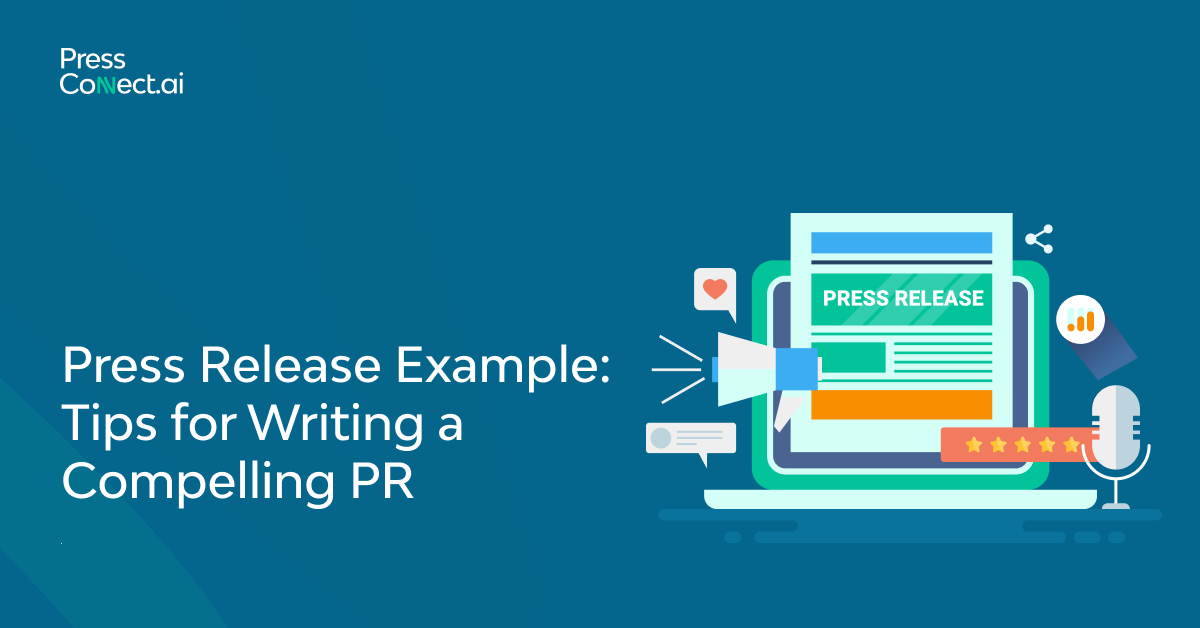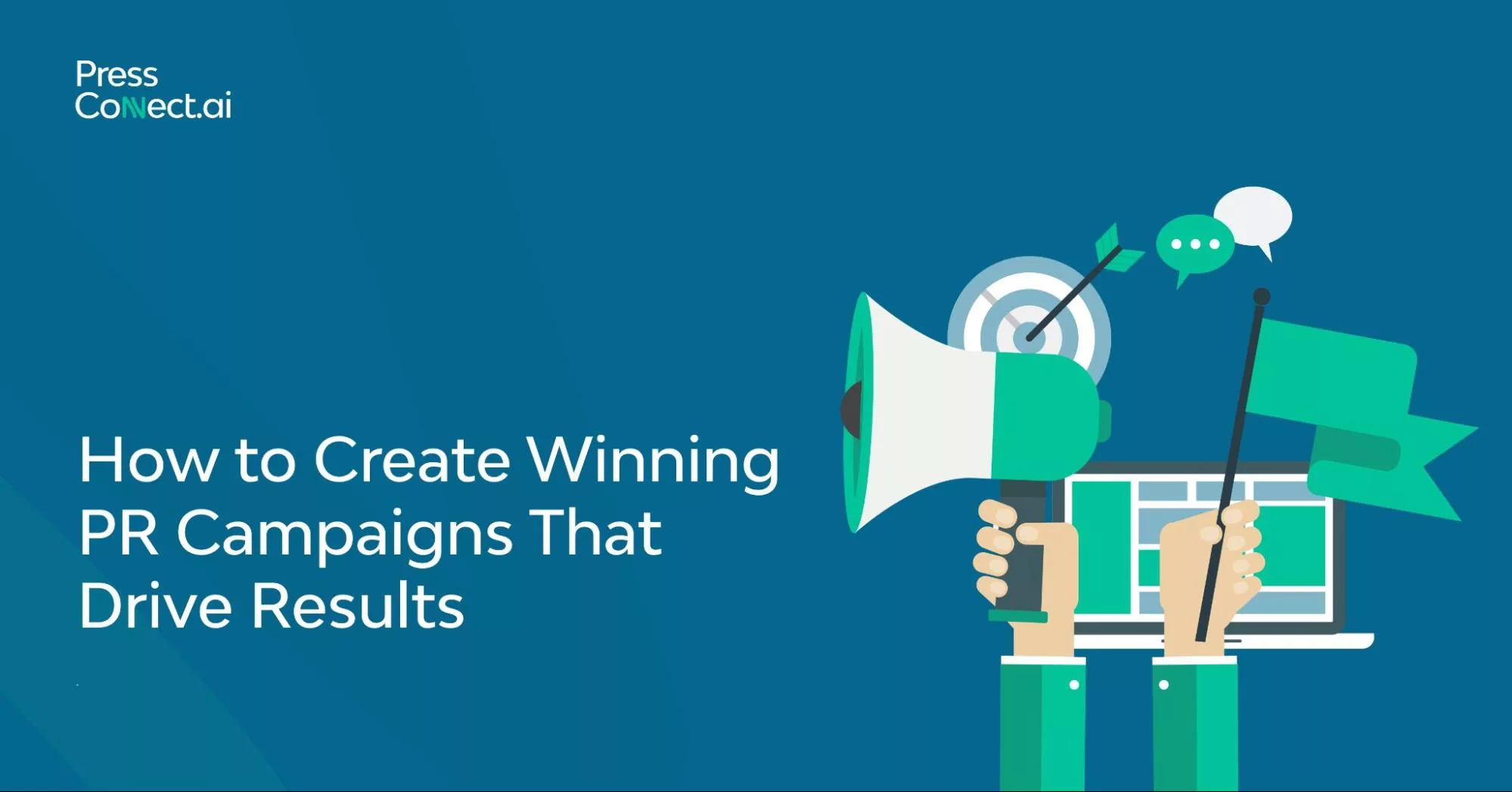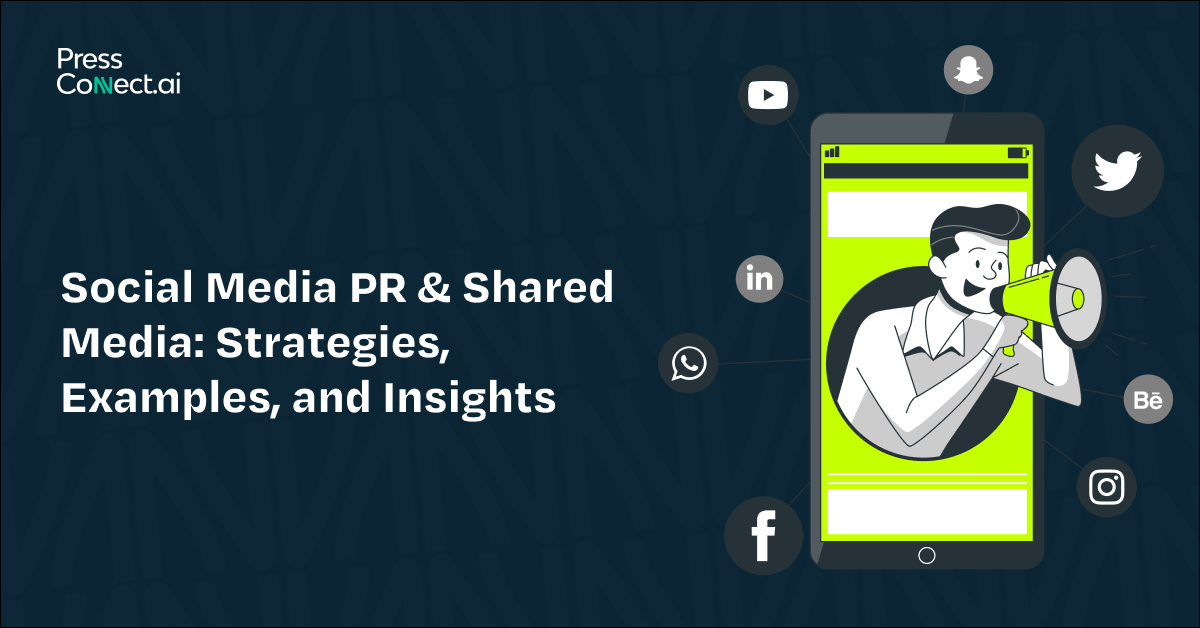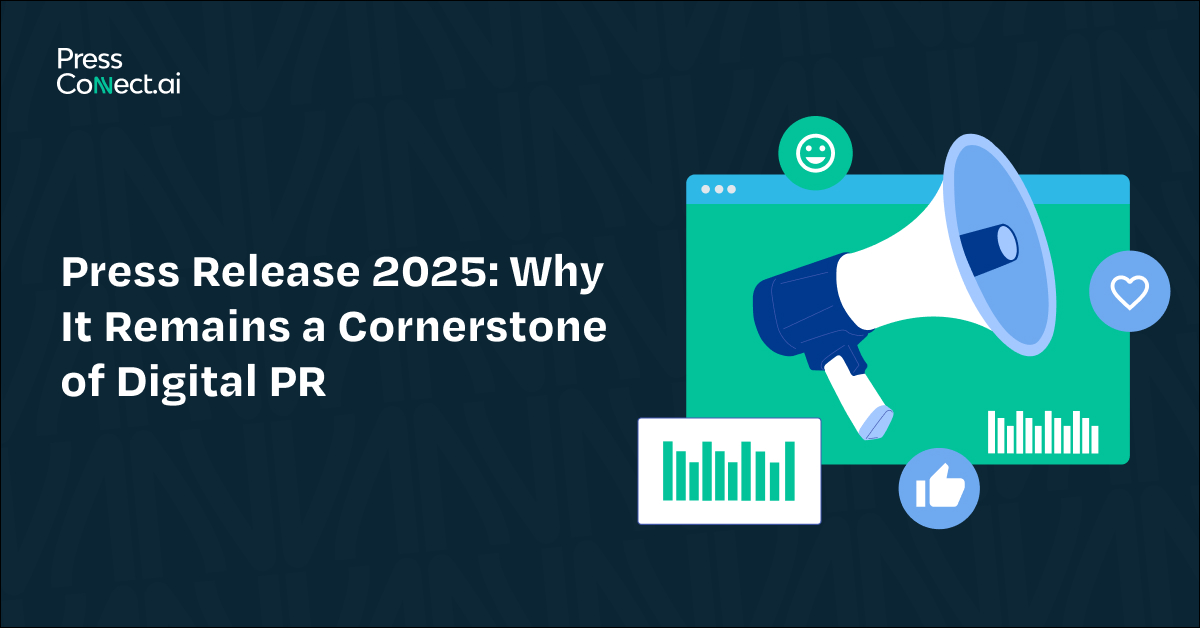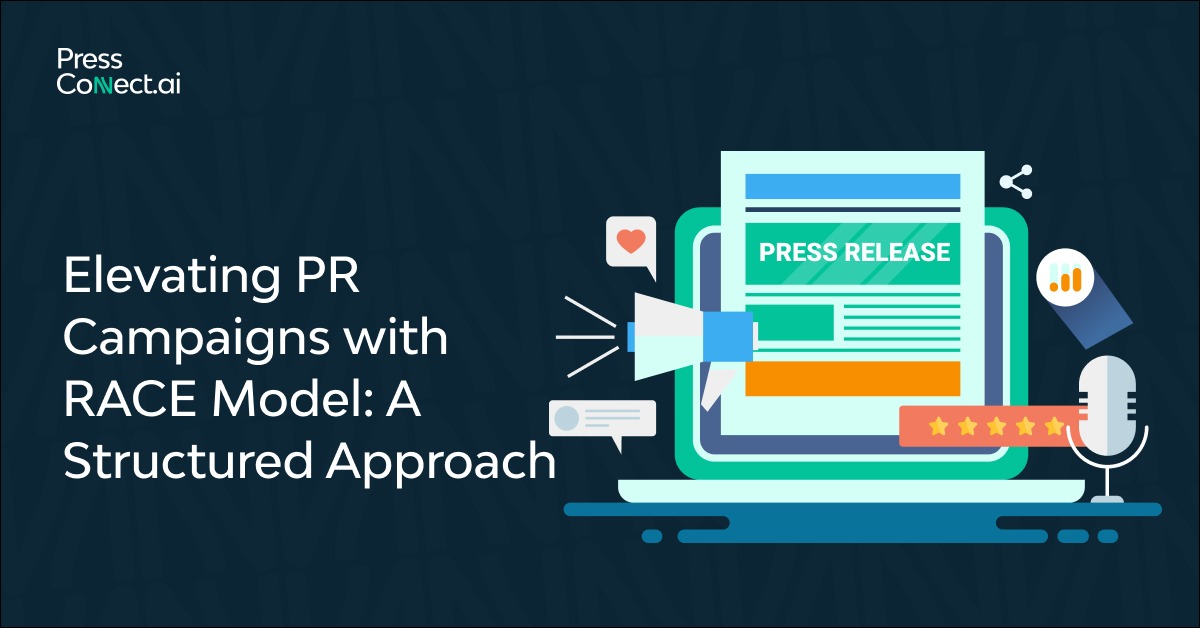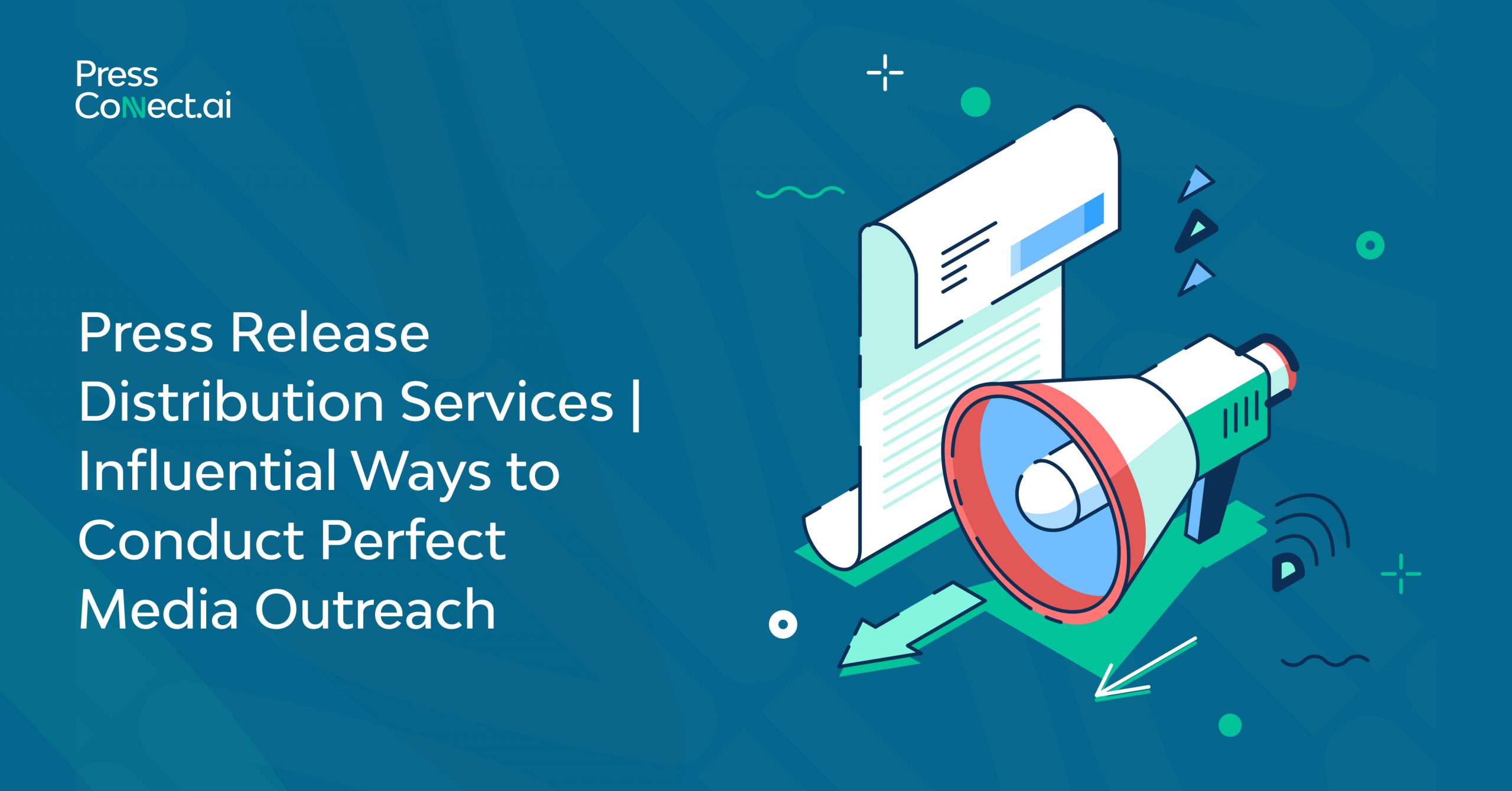A Go-To Guide to Write a Press Release Format in 2024 for Guaranteed Impact
In today’s digital-first world, businesses need to create their own buzz. People are no longer waiting for newspapers to get their news. Instead, they scroll social media channels to get the latest headlines or to connect with the brands.
To do so, businesses write and publish press releases to target vast audiences while ensuring good reach. However, a digital PR must have a well-crafted and professional format to grasp the attention and get global reach. If businesses post a press release that doesn’t relate to their services or company activities, the response will be minimal while brands that engage in storytelling see a 64% increase in customer engagement.
Not every brand knows how to write a PR and make it go viral. However, a perfect press release can help companies get authoritative backlinks and accelerate the brand’s reputation among potential customers, yet requires careful preparation.
In 2024 and beyond, PRs that include newsworthy and authentic content can help businesses of all sizes experience increased traffic, boost reach, and ultimately enhance their bottom line.
What is a Press Release?
A PR is a brief and noteworthy announcement or news about a company planned to be shared across media outlets, targeting vast audiences. It’s not a description of the general state of the marketplace or an advertisement. Businesses and organizations issue press releases to alert the general public and cross-border audiences about new services or products, changes in management teams, new hiring, or a critical distinction or event.
What are the Different Types of Press Releases?
There is a standard format for press release writing. However, they all serve a similar purpose. Not all types of PRs are the same, requiring slight variations in structural approaches. Some of the most occurring PR types include:
- Event Press Release:
This breaks the news about an upcoming or past business event that the business might attend or organize. It could be about private events exclusive to the business community or open to the general public. - New Hiring Press Release:
Notable promotions or C-level executive hiring within a business might be announced only if relevant or impactful in some way. - Product Press Release:
A new product or an update in existing products warrants a PR explaining how it will impact the market or its usage. - New Partnerships Press Release:
This type of PR allows businesses to notify media outlets, existing customers, and potential clients about partnerships that could impact industries. - Award Press Release:
This breaks the news about being awarded for best services or products and significantly impacting the industry. - Rebranding Press Release:
A PR announcing a significant change in the company’s name, logo, website, core services, and products.

What is the Industry-Standard Press Release Format?
Many events must be covered for a digital PR; depending on the type of occasion or even publication guidelines, the structure of PR might require changes. However, the basic layout of a PR mostly has the same standard format, which is outlined below:
Header Image or Logo
A press release often begins with the company’s branding image or logo announcing the news. In addition to this, it’s becoming a common practice to include a header image embedded with the business logo. This is a viable way of catching viewers’ attention only if kept relevant. However, businesses need to ensure that the images are unique and high-quality.
Contact Information
After adding your brand’s logo or a header image, mention business contact details for the press release publisher or distributor. The information must include the business representative’s name, email address, and mobile number. Additionally, it suggested adding the company’s address and a clickable link to the business website to make it more precise.
For seamless communication, businesses need to identify a contact person who has the skills to communicate with the media outlet while having a sound understanding of company products and services to help customers learn more about the announcement. In almost every type of PR, such information is placed in the below-left corner of the press release.
Dateline and Release Date
After adding contact details, a standard PR format requires the projected release date. Companies must ensure that the date of PR publication is explicitly stated for immediate release or need to specify a date. This will help media outlets know how recent the news is and when the PR will be published or distributed.
Headings
Next comes the heading, which is consistently formatted using heading tags, for instance, H1, for the main headings. However, a noteworthy thing in this is that the heading must have a hook, so one should care about it before reading the PR. The more relevant and compelling the heading, the more chances journalists and potential customers will read further or even visit your business website.
Subheading
In a standard PR format, the subheading of the release is added beneath the main heading. The subheading includes a concise summary of the announcement. However, it depends on the businesses; they can format the subheading in both bold or italics, but the subheading must not be more than a sentence. A subheading is not required, and many companies ignore this section, but it’s a great way of making the reader scroll down to continue reading.
Place Stamp and Date
It’s an ideal approach to add a place stamp and date at the beginning of the opening paragraph, from where the first sentence is to be started, separated by a dast or single space. The place stamp must include the name of the state/city/ country, allowing journalists to determine the origin of the PR. However, in the case of general announcements, the physical location of a business is also quoted, and if the PR is about an event, the event location is also mentioned. The date is also written with the month’s full name, and then the numerical digits are added, followed by the year.
Introduction and Lead Paragraph
The first or opening paragraph of the PR is called an introduction, including the main crux of the press release, hooking the viewers’ attention. This is the significant part of any press release in which the 5-W’s: who, what, when, why, and where should be adequately described. Additionally, it’s viable to do precise interlinking to business sources.
Body
The rest of the information is added to the body, always starting with the most crucial information and proceeding according to the significance level. However, there are no specific rules regarding the number of paragraphs that should be added to the press release, yet it’s a good approach to keep the PR concise and as short as possible. An ideal PR includes 2 to 3 paragraphs that probably fit on a single page.
Businesses can also include graphics or multimedia content along with quotes from the company’s C-level executives. Engaging and relevant add-ons can increase the chance of getting picked by big media outlets, reaching vast audiences. However, it is noteworthy that press releases must be written in AP style, but this depends on the platforms’ standards in which the PR is to be submitted. So, checking the publication guidelines before writing a PR is suggested.
Boilerplate
At the end of the body text, businesses must add a boilerplate, a brief description, or a statement providing journalists and readers an overview of the company. This section is almost identical to the website’s “About” section. However, it must be upto 100 words, not more than that, as it will make it more promotional, reducing the chances of getting picked by the media. As boilerplate is all about introducing your business, adding a link to the website in this section is suggested, followed by a call to action and contact information so that anyone can reach out to your business effectively.
End Notation
It’s a standard practice to end a PR by adding “###” above the boilerplate of a press release, indicating to readers that there is no further copy to read. However, adding some indication at the end of the PR is not recommended if the copy exceeds a page.
Final Thoughts
While learning how to craft an impactful press release, it is noteworthy to understand that PR format is more than just adding technicalities. Just remember to follow the above-mentioned points to ensure the right formatting while adding all the necessary details to make it engaging and interesting. PR services are a great way of boosting marketing efforts beyond channels.
And now you have Press Connect to craft, publish, and distribute your business PR. With Press Connect, businesses don’t have to worry; we are offering state-of-the-art digital PR services backed by a team of professional writers with years of experience in helping businesses spread their news across the globe while experiencing a significant increase in customer reach.
Want to share your business news and reach vast audiences?

